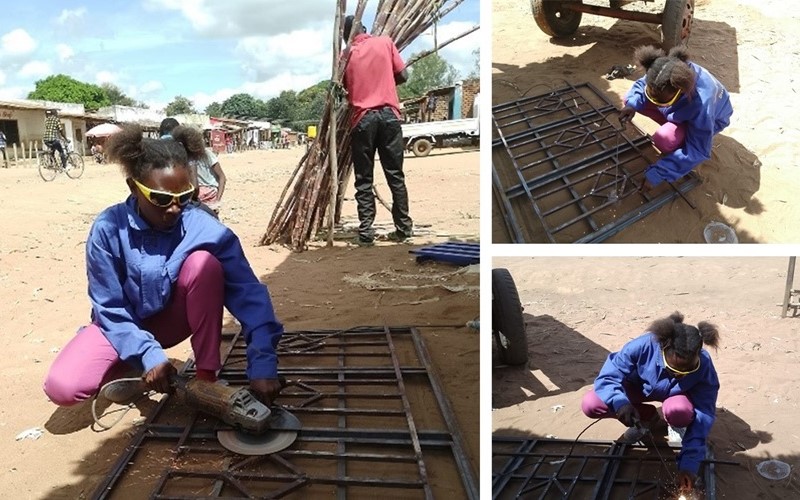
In Malawi, gender inequality is a big issue since, traditionally, women have been restricted to taking care of the house and cooking. To advocate for change, the Centre for Research and Development Initiative (CERADI), with funding from Global Affairs Canada (GAC) through the Commonwealth of Learning (COL), embarked on its Empowering Women and Girls (EWG) journey – a three-year project being implemented in the Traditional Authorities of Simphasi and Kapondo in Mchinji and Kalembo in Malawi’s Balaka region. One of the project’s aims is to empower women and girls through vocational skills, such as welding.
CERADI is a local Mchinji-based organisation with the goal of improving the lives of people in rural communities by promoting self-reliance among women and girls through education, both formal and informal.
Sophie Tibula, a 19-year-old from Mzati Village, recently enrolled in the welding and fabrication trade and had this to say:
“I am so grateful to CERADI for giving me this opportunity to become a welder. It has been my dream since I left secondary school. In my village, welding is regarded as men’s work, but when I got the news that I am one of the successful candidates to be enrolled on vocational skills training in welding, I was so overwhelmed. It feels so good because this dream is going to come true; I have always wanted to be an artisan. Though I have just started, I am confident I will make it because this will transform my life, and I believe I will inspire more girls in my village. My plan is to start my own workshop in my village to prove to them that no job is only meant for men. It is in my best interest to contribute towards the development of my village through training that I will be offering to my fellow youths.”
Frances Ferreira, COL’s Senior Adviser: Women and Girls, commented on some of the recent outcomes of the EWG project on Malawi:
“This project is facilitating the increased labour market participation of females through their new skills in industrial trades previously reserved for men. According to the International Labour Organization, ‘Women who enter male-dominated sectors make three times more than women in female-dominated sectors.’ This demonstrates that the work we are doing in the EWG project can transform the lives of women and girls.”


